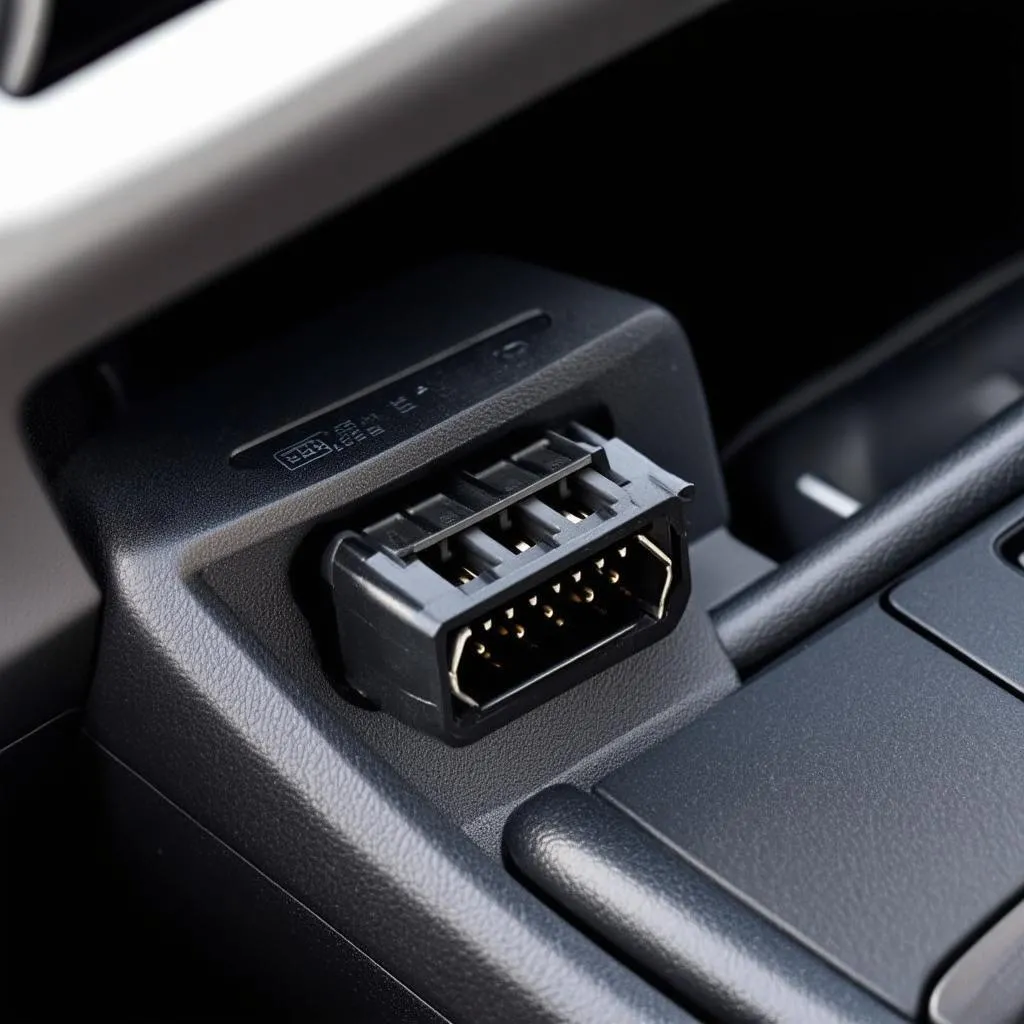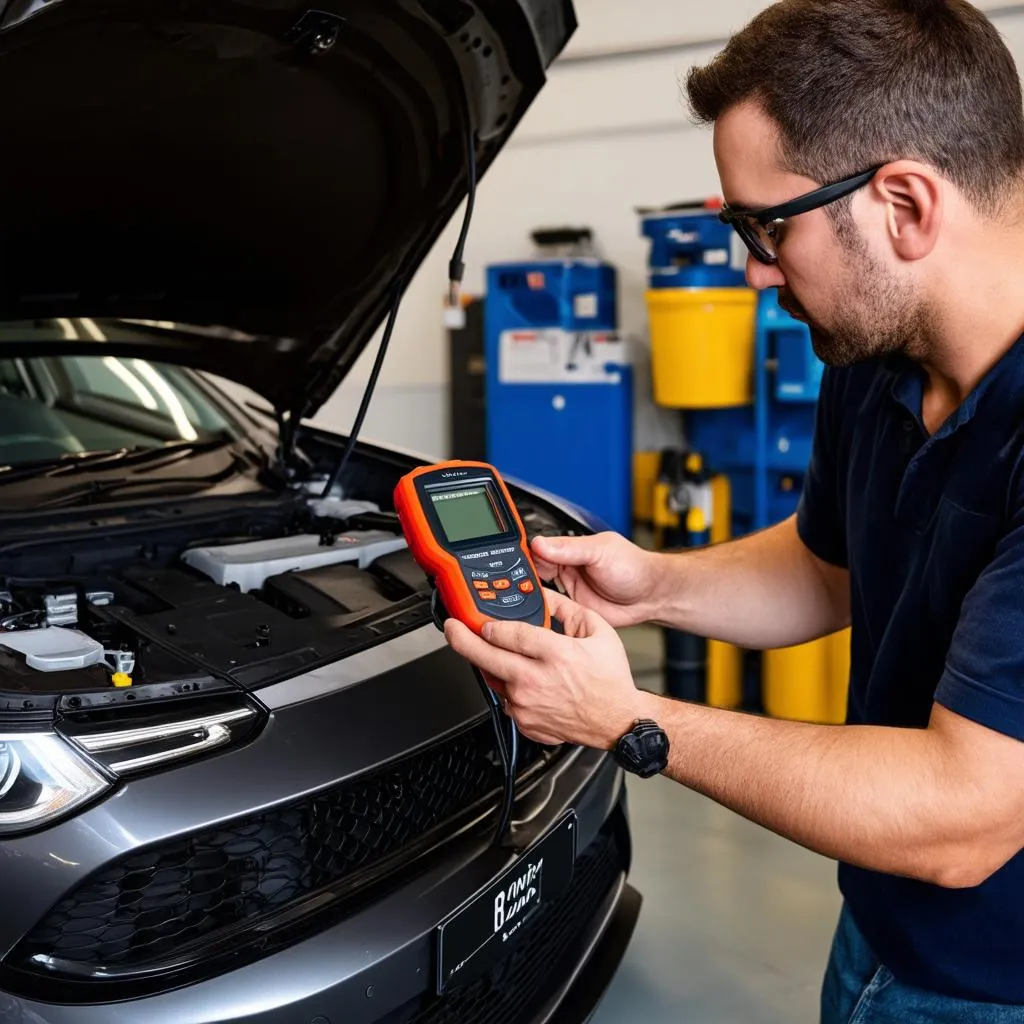Imagine this: you’re cruising down the highway, enjoying the open road, when suddenly – bam! – your check engine light pops on. Mysterious, right? It’s like your car is trying to speak to you in a language you don’t understand. Well, fret no more! This is where the magic of OBD-II protocols comes in, acting as your very own car whisperer.
What are OBD-II Protocols and Why Should I Care?
OBD-II, short for On-Board Diagnostics, second generation, is essentially the standardized system that allows external electronics to tap into your car’s computer and retrieve valuable diagnostic information. Think of it as the Rosetta Stone for understanding your car’s health.
Now, here’s where the “protocols” come in. Just like humans use different languages, cars from different manufacturers communicate through various protocols. These protocols are sets of rules and commands that dictate how the diagnostic tool (like a dealer scanner) talks to your car’s computer.
Why is this important?
For car owners, understanding OBD-II protocols can empower you to:
- Diagnose car problems: By connecting a compatible scanner, you can read and decipher those cryptic engine codes, potentially saving yourself time and money on unnecessary mechanic visits.
- Monitor car performance: Want to keep tabs on your fuel efficiency or track emissions? OBD-II protocols allow you to access real-time data from your car’s sensors.
- Unlock hidden features: Some protocols even provide pathways to tweak and customize certain car settings, though we recommend proceeding with caution!
For mechanics, OBD-II protocols are the bread and butter of their diagnostic process, allowing them to pinpoint issues quickly and efficiently.
Common OBD-II Protocols:
Some of the most common protocols you’ll encounter include:
- ISO 9141-2: Often found in older European vehicles.
- KWP2000 (ISO 15765-4): Popular in European and Asian vehicles.
- SAE J1850 PWM/VPW: Commonly used in older Ford and GM vehicles.
- CAN (Controller Area Network): The most modern protocol, found in most vehicles manufactured after 2008.
Diving Deeper: Decoding OBD-II’s Secrets
Let’s address some frequently asked questions surrounding OBD-II protocols:
Q: Do all cars use the same OBD-II protocol?
A: Unfortunately, no. While the OBD-II connector itself is standardized, the protocol used varies depending on the car’s make, model, and year.
Q: How do I know which protocol my car uses?
A: You can usually find this information in your car’s owner’s manual. Alternatively, websites and online forums dedicated to car diagnostics can be valuable resources.
Q: Can I use any OBD-II scanner with my car?
A: Not necessarily. While basic code readers might work across a range of protocols, more advanced scanners are often designed to work with specific protocols. Always check compatibility before investing in a scanner.
A Word from the Experts
“Understanding OBD-II protocols is like having a secret decoder ring for your car,” says Dr. Emily Carter, a renowned automotive engineer and author of “The Complete Guide to Car Diagnostics”. “It empowers car owners to take control of their vehicle’s maintenance and repairs.”
 OBD-II Connector
OBD-II Connector
Beyond the Technical: A Holistic Perspective
While OBD-II protocols are inherently technical, their impact extends beyond the realm of nuts and bolts. They represent a shift towards transparency and accessibility in the automotive industry. Just like we value open communication in our human relationships, clear communication between our cars and ourselves fosters a deeper sense of trust and understanding.
From a practical standpoint, knowing about OBD-II protocols can even save you money. Imagine being able to diagnose a simple sensor issue yourself instead of paying hefty diagnostic fees at a garage. That’s financial empowerment!
 Mechanic Using OBD-II Scanner
Mechanic Using OBD-II Scanner
Exploring the OBD-II Universe on techcarusa.com
Want to delve deeper into the world of OBD-II? Check out these related articles on techcarusa.com:
Need Help? We’re Here for You!
Navigating the world of car diagnostics can be daunting. But remember, you don’t have to do it alone. Our team of expert automotive technicians is available 24/7 to assist you with any questions or concerns you may have. Contact us via WhatsApp at +84767531508 and let us help you unlock the secrets of your car.
Keep the Conversation Going
Have you had any interesting experiences with OBD-II protocols? Share your stories and insights in the comments below! Let’s learn from each other and keep the wheels of knowledge turning.
